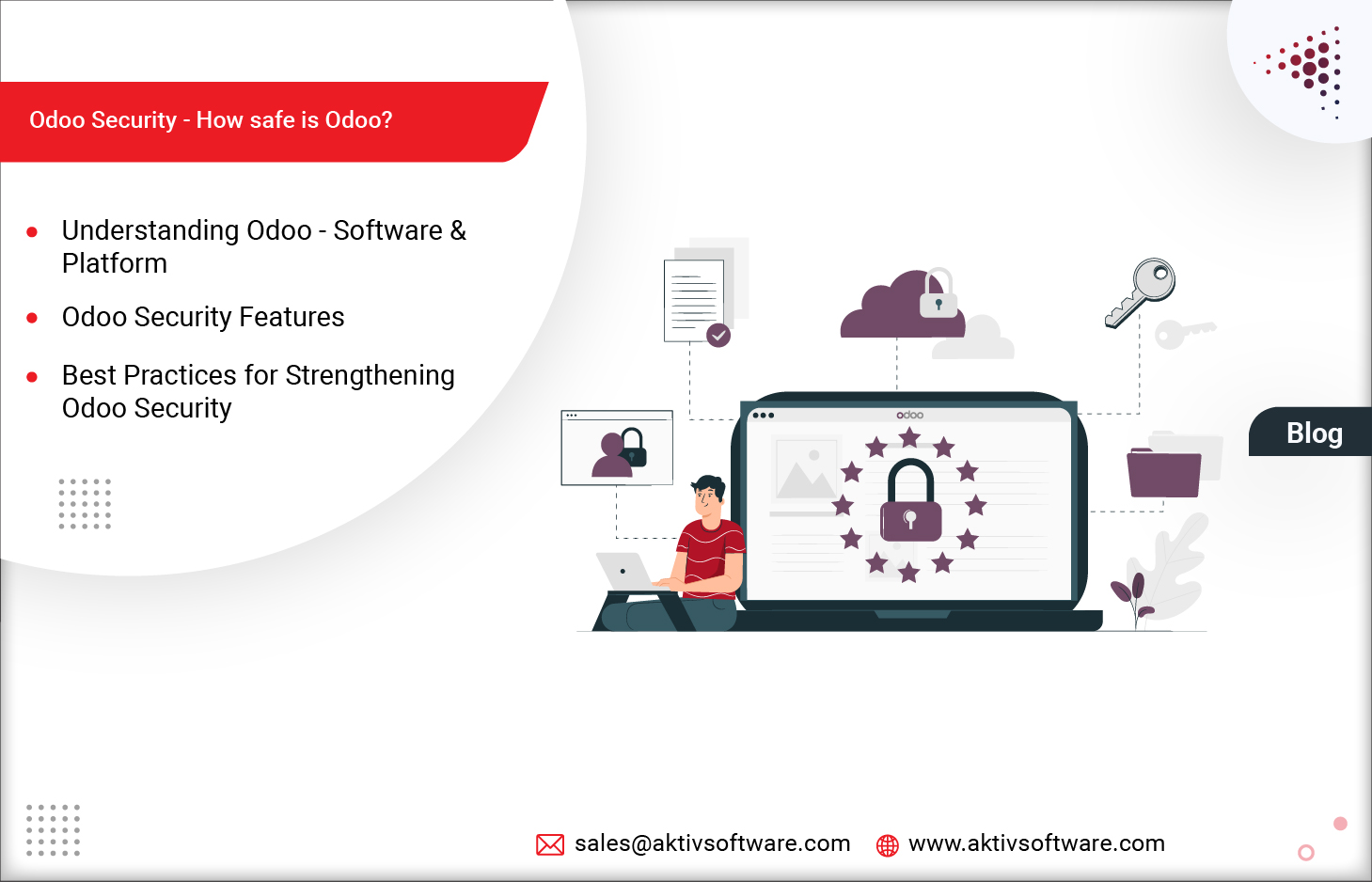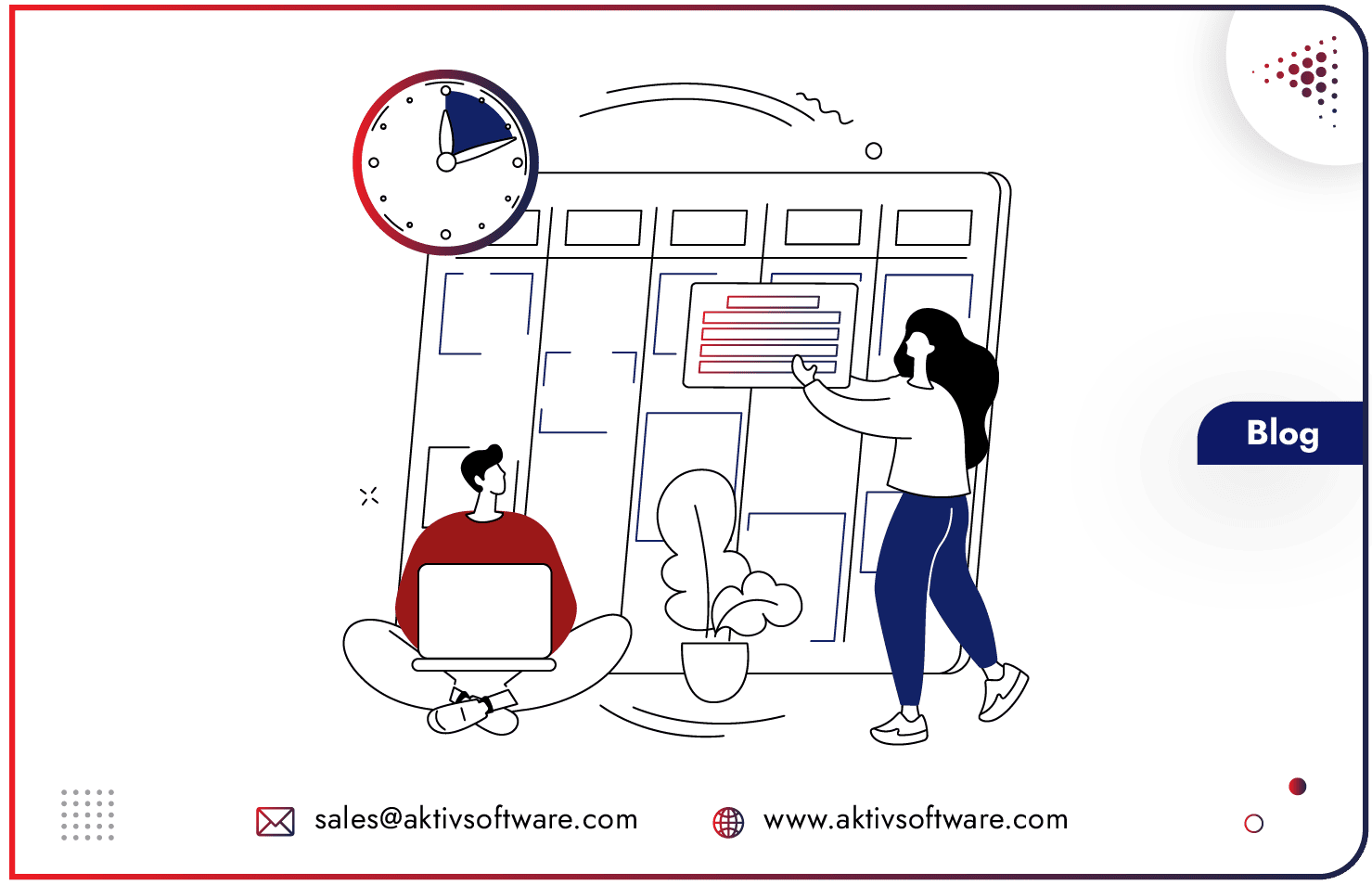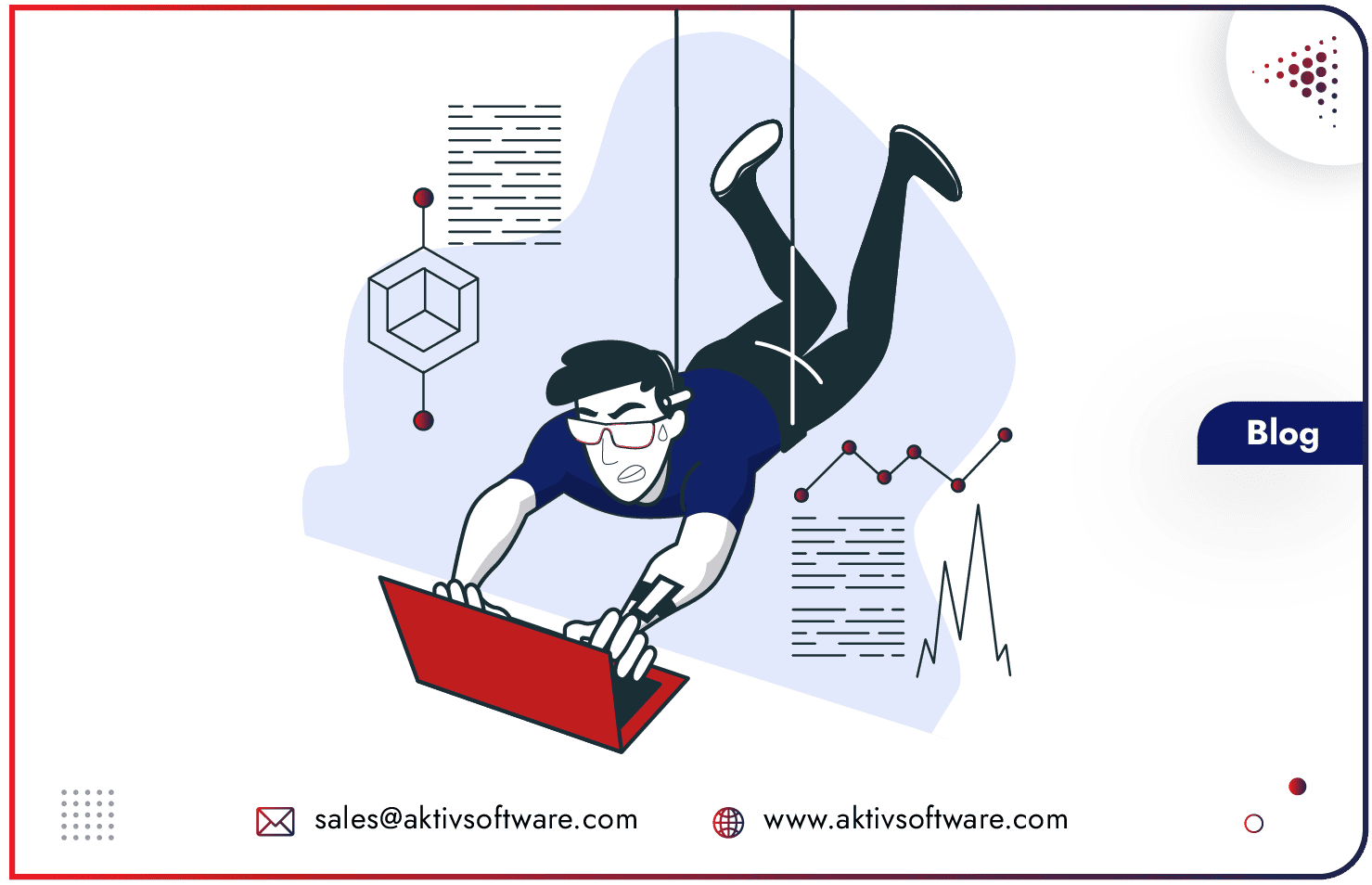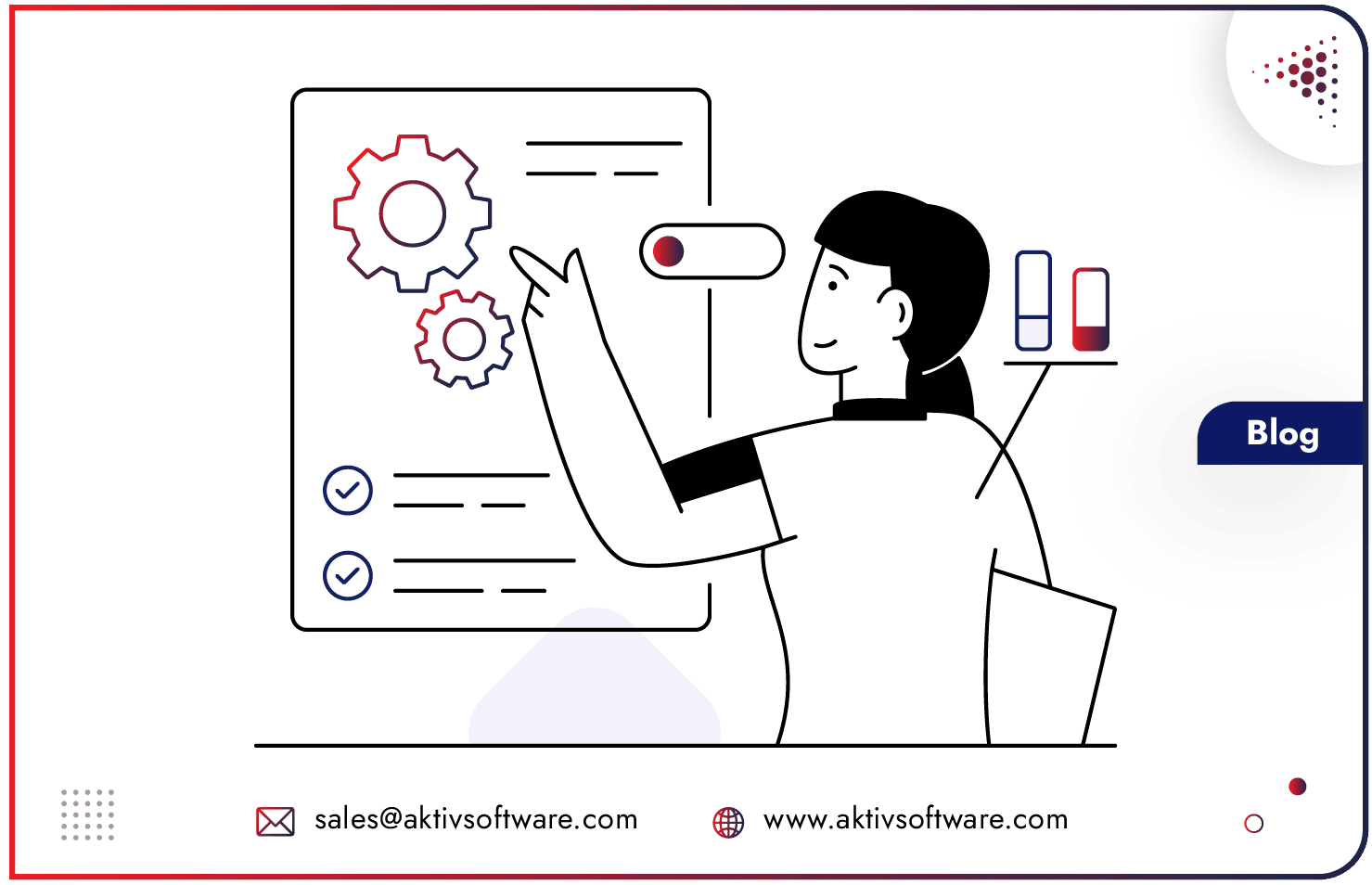An ERP system is the backbone of a modern-day business and security is a paramount concern for businesses and organizations.
With the increasing reliance on software solutions for various business operations, it’s crucial to ensure that the tools you use are secure. Odoo, a popular open-source business management software, is no exception to this concern. This blog will help you explore the world of Odoo Security to answer the question: How safe is Odoo?
Understanding Odoo – Software & Platform
When talking about Odoo, we need to consider two perspectives: the software & the platform.
Odoo as Software:
Odoo, the software is an open-source integrated suite of applications that streamline various business processes, including sales, procurement, inventory, accounting, manufacturing, and more. The security of Odoo software is very important to protect sensitive business data and maintain the confidentiality, integrity, and availability of your information.
Odoo as a Platform:
Odoo, the platform can be deployed on a cloud server. A business has a choice to either implement Odoo on its own servers or host it on Odoo’s servers.
If a business chooses to go with their own server, they have to implement security measures for their server. However, if they choose to go with Odoo’s Cloud servers for hosting, they will benefit from the advanced security measures that Odoo has put in place on its servers.
Odoo Security Features
1) Data Encryption & Authentication
Odoo’s commitment to data security is evident in its use of robust encryption protocols, such as SSL/TLS, to safeguard data during transmission and at rest. Access to the platform is controlled through stringent authentication and authorization processes, ensuring that only authorized personnel can access specific modules and data.
2) Regular Updates & Community Vigilance
Regular updates and security patches are released to address vulnerabilities and enhance the overall security of Odoo. The Odoo community, along with certified partners, actively contribute to identifying and reporting security issues, creating a collective shield of protection.
Explore the upcoming version, Odoo 17>>
3) Customization & Role-Based Access
Customization is at the core of Odoo’s flexibility. Users can tailor the platform to suit their unique requirements, but with this flexibility comes the responsibility of configuring role-based access control to limit data exposure.
4) Backup & Disaster Recovery
Odoo Cloud, the hosting platform, maintains a rigorous backup and disaster recovery system. It keeps 14 full backups of each Odoo database for up to three months. These backups are replicated across multiple data centers on different continents, providing redundancy and reliability. In cases of hardware or data center failures, the platform’s recovery objectives ensure minimal data loss and service downtime.
5) Physical Security & Network Defense
The physical security of Odoo Cloud servers, hosted in trusted data centers worldwide, is paramount. Security measures include biometric access control, surveillance, and on-site security personnel. Additionally, network defenses, like DDoS mitigation and intrusion prevention systems, protect against external threats.
6) Credit Card Safety & Data Encryption
For financial security, Odoo never stores credit card information. The direct transmission of credit card data between customers and PCI-compliant payment acquirers ensures the confidentiality and safety of sensitive financial data. Data is always encrypted, both in transit and at rest, using state-of-the-art encryption protocols.
Best Practices for Strengthening Odoo Security
While Odoo provides a strong security foundation; the following proactive measures should be taken to reinforce it:
- Strong Passwords: Encourage users to create strong and unique passwords, and consider implementing multifactor authentication (MFA) for an extra layer of security.
- Regular Updates: Stay vigilant with Odoo updates and apply security patches promptly. Staying current is crucial for addressing known vulnerabilities.
- Access Control: Configure user roles and permissions meticulously, ensuring that users can only access the modules and data necessary for their roles.
- User Activity Monitoring: Regularly monitor user activity logs to detect and respond to any suspicious behavior.
- Secure Server Infrastructure: For self-hosted installations, adhere to best practices for securing the server infrastructure where Odoo is deployed. Ensure the server’s robustness to safeguard against potential vulnerabilities.
- Training and Education: Promote security awareness among your team through training and education, emphasizing best practices and the correct usage of Odoo software.
Automate Server security for your Odoo Hosting
Odoo: A Security-First Approach
In conclusion, Odoo’s comprehensive security framework demonstrates its commitment to safeguarding user data and ensuring the integrity of business operations.
Understanding Odoo as both software and platform is vital for making the most of its capabilities and for appreciating the robust security measures in place. With a combination of built-in security features and proactive best practices, Odoo emerges as a secure and reliable choice for businesses looking to manage their operations efficiently and protect their invaluable data.






